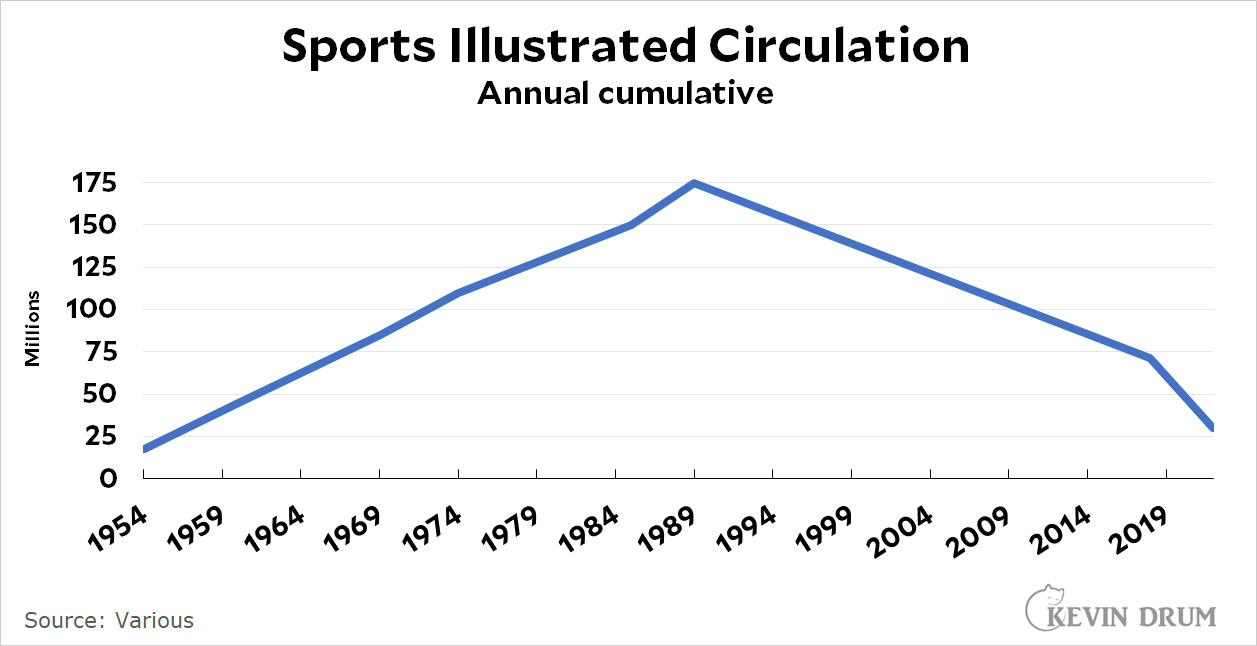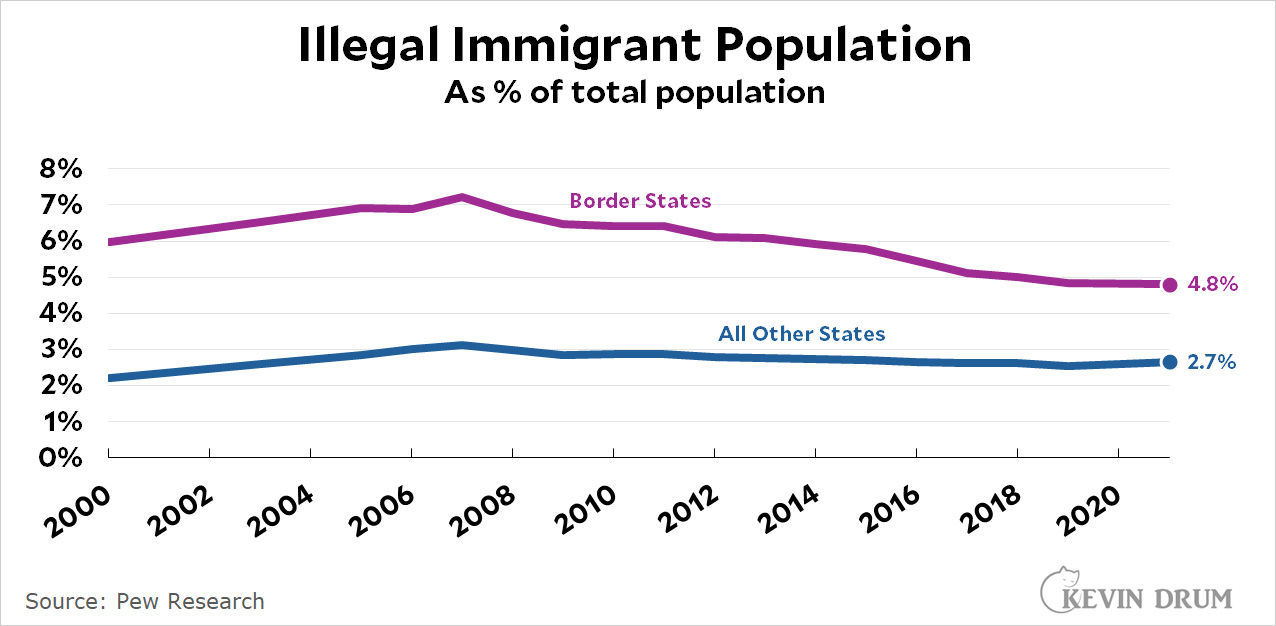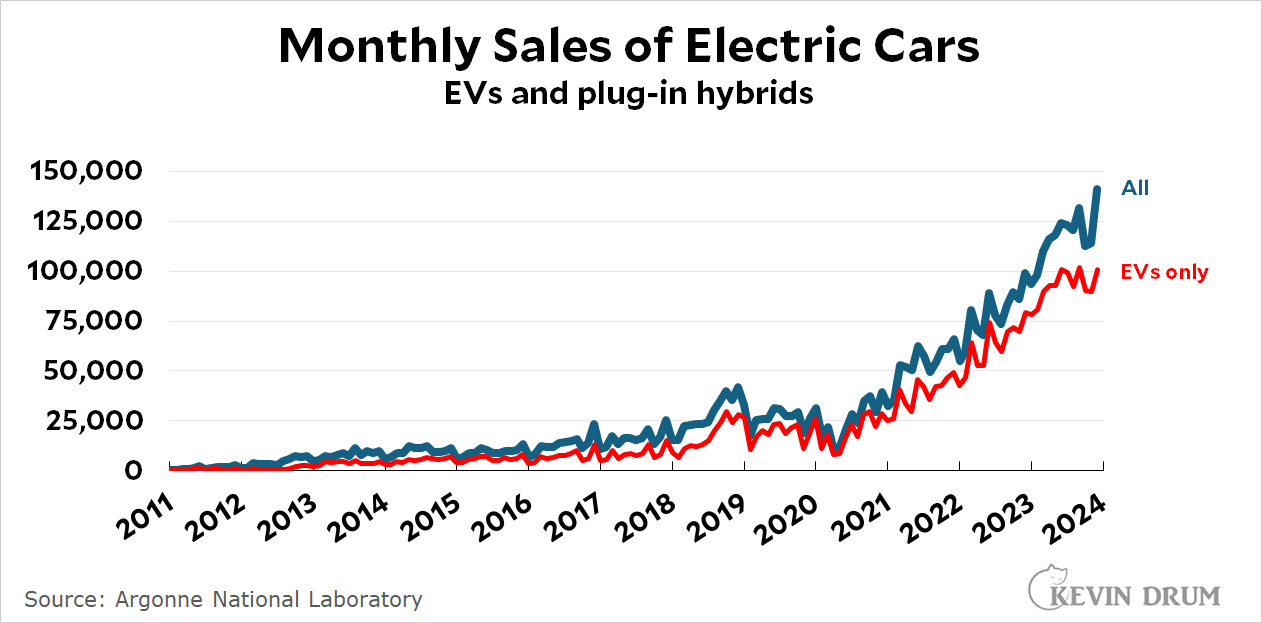Paul Krugman today:
I get that Krugman is being careful here, talking about the cumulative price level rather than the inflation rate, but it's still misleading. It also happens to be a pet peeve of mine, so here's a chart showing the inflation rate under Reagan and Biden:

The difference is obvious. Under Reagan, the inflation rate peaked before he entered office and then declined steadily. Nobody blamed him for inflation, but they did give him credit for three years of consecutive decline amounting to a whopping 10 percentage points.
Biden's term has been completely different: inflation peaked a year into his presidency and has been under 4% for only a few months. People do blame him for sparking inflation, and the slowdown is still too recent for him to get much credit for the recent 5-point decline.
The only reason I bring this up is because of an annoyingly common media criticism: Why does [my guy] not get the same credit as [their guy] even though [economic indicator] is the same for both?
The answer is tediously obvious: even if some economic indicator is identical between two presidents, it makes a big difference whether it's going up or down. A year into their presidencies, Reagan and Biden were both presiding over 8% inflation. But for Reagan that was a big drop while for Biden it was a big increase.
POSTSCRIPT: A different question is whether Reagan should have gotten credit for declining inflation and whether Biden should have gotten blame for rising inflation. The answer is pretty simple: Reagan had nothing to do with slowing inflation (it was all Paul Volcker and tight monetary policy) and Biden had only a little to do with rising inflation (it was the pandemic and government stimulus—almost all of which predated Biden). Neither man should have gotten much credit or blame.
POSTSCRIPT 2: It's instructive to take a look at another metric: the unemployment rate. Here it is:
 In this case, unemployment rose sharply under Reagan and dropped only late in his first term. By contrast, it came down steadily under Biden and has been at a very low level for two years already.
In this case, unemployment rose sharply under Reagan and dropped only late in his first term. By contrast, it came down steadily under Biden and has been at a very low level for two years already.
And yet, the same dynamic seems to have played out: Reagan got credit for bringing down unemployment (which was still above 7% when he ran for reelection) while Biden seems to have gotten almost no credit for historically low unemployment.
What's going on here? My longstanding guess has been simple: Reagan ran for office on a very loud and persistent platform that promoted supply-side economics and tax cuts as a cure for the economy. When the economy did finally improve, the conservative press crowed and everyone was primed to believe that Reagan's policies were responsible.
Democrats in general—and Biden specifically—don't do this. Nor does the liberal press play along with partisan pretenses nearly as much. As a result, the public isn't primed to believe that there was any plan in the first place, so if and when the economy improves Democrats get little credit.
 The reason is hardly a mystery. When SI started up, it was one of the few sources of real sports reporting. TV broadcast a smallish number of sports events and that was that.
The reason is hardly a mystery. When SI started up, it was one of the few sources of real sports reporting. TV broadcast a smallish number of sports events and that was that.








